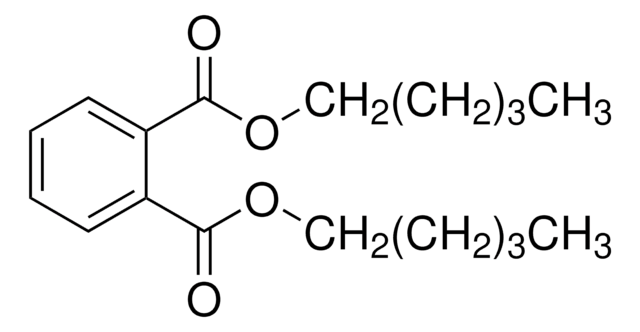49617
Dihexyl phthalate
analytical standard
Synonym(s):
1,2-Benzenedicarboxylic acid 1,2-dihexyl ester, Di-n-hexyl phthalate, Phthalic acid dihexyl ester
About This Item
Recommended Products
grade
analytical standard
Quality Level
assay
≥99.0% (GC)
shelf life
limited shelf life, expiry date on the label
technique(s)
HPLC: suitable
gas chromatography (GC): suitable
refractive index
n20/D 1.486-1.489
application(s)
cleaning products
cosmetics
environmental
food and beverages
personal care
format
neat
storage temp.
2-8°C
SMILES string
O=C(OCCCCCC)C1=CC=CC=C1C(OCCCCCC)=O
General description
Application
Recommended products
signalword
Danger
hcodes
Hazard Classifications
Repr. 1B
Storage Class
6.1C - Combustible acute toxic Cat.3 / toxic compounds or compounds which causing chronic effects
wgk_germany
WGK 3
flash_point_f
350.6 °F
flash_point_c
177 °C
Choose from one of the most recent versions:
Already Own This Product?
Find documentation for the products that you have recently purchased in the Document Library.
Customers Also Viewed
Our team of scientists has experience in all areas of research including Life Science, Material Science, Chemical Synthesis, Chromatography, Analytical and many others.
Contact Technical Service










